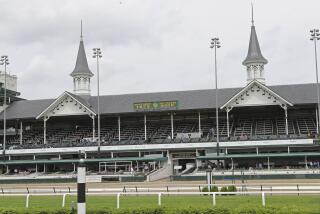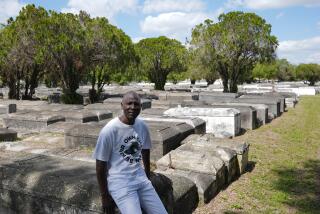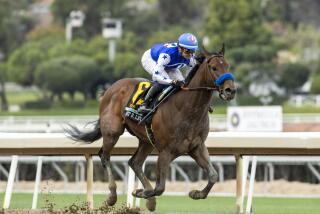Behind the story: How a drive through rural Kentucky led to a mostly forgotten part of black history
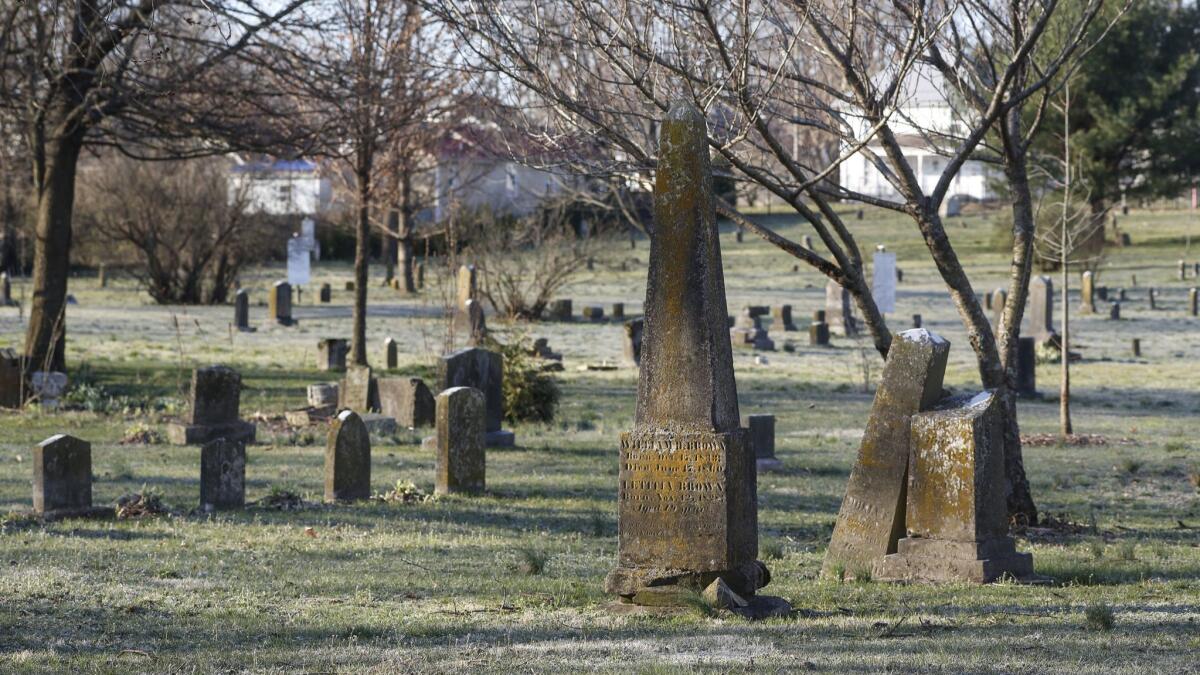
The sprawling horse farms off Route 68 northeast of Lexington, Ky., have a captivating pull.
After miles of peeking out the window for hurried glimpses, I pulled my rental car to the side of the road. Rolling hills of bluegrass. Slatted wooden fences. Towering stables with fresh coats of paint. Thoroughbreds grazing, some trotting.
It was late January and I was on assignment in Kentucky for a piece on tobacco farmers who now grow industrial hemp. But as often happens with journalists, while reporting one story I stumbled across another.
THE STORY: In a neglected cemetery lie black jockeys who helped create the Kentucky Derby »
The horse farms — places with names like Gainesway, Rosemont, Walmac — span thousands of acres and, like the bourbon distilleries in these same hills, fuel the state’s economic engine. Hundreds of thousands of people will descend upon the state for Saturday’s running of the Kentucky Derby.
Peering out at Rosemont one evening, I was struck by its beauty. As a black man, I wondered how many, if any, of these farms were owned by African Americans. Deep down, I knew the answer — slavery and Jim Crow are deeply rooted in Kentucky history.
A quick Google search when I was back in my hotel room confirmed my hunch: zero.
As I scrolled through the search results, I stumbled upon a local group working to preserve the history of black jockeys, grooms and trainers. A few of the men, I realized, had been laid to rest at African Cemetery No. 2, a short drive from my hotel.
Oliver Lewis. James “Soup” Perkins. Isaac Burns Murphy.
These men were legends. They were firsts.
When I was growing up, my dad made a point of highlighting black firsts. Doug Williams was the first black quarterback to win the Super Bowl. Tiger Woods the first to win the Masters. And Thurgood Marshall the first to sit on the Supreme Court.
Some of the black men you’ll read about in Thursday’s Column One earned that same distinction, playing an important — but often overlooked — role in the history of horse racing.
On a damp morning, I drove down a quiet two-lane road until I got to African Cemetery No. 2 — the name a remnant of the Reconstruction and Jim Crow eras, when blacks and whites were buried in separate cemeteries.
I got out of my car and stood silently, and alone. As I walked through the cemetery, the shrill sounds from a nearby auto garage pierced the silence. I noticed patches of grass without headstones — a luxury for those who could afford to erect them.
Thousands of African Americans — some of them horse racing pioneers — were buried in the cemetery without headstones.
I kept walking alone across the eight acres thinking about these forgotten firsts.
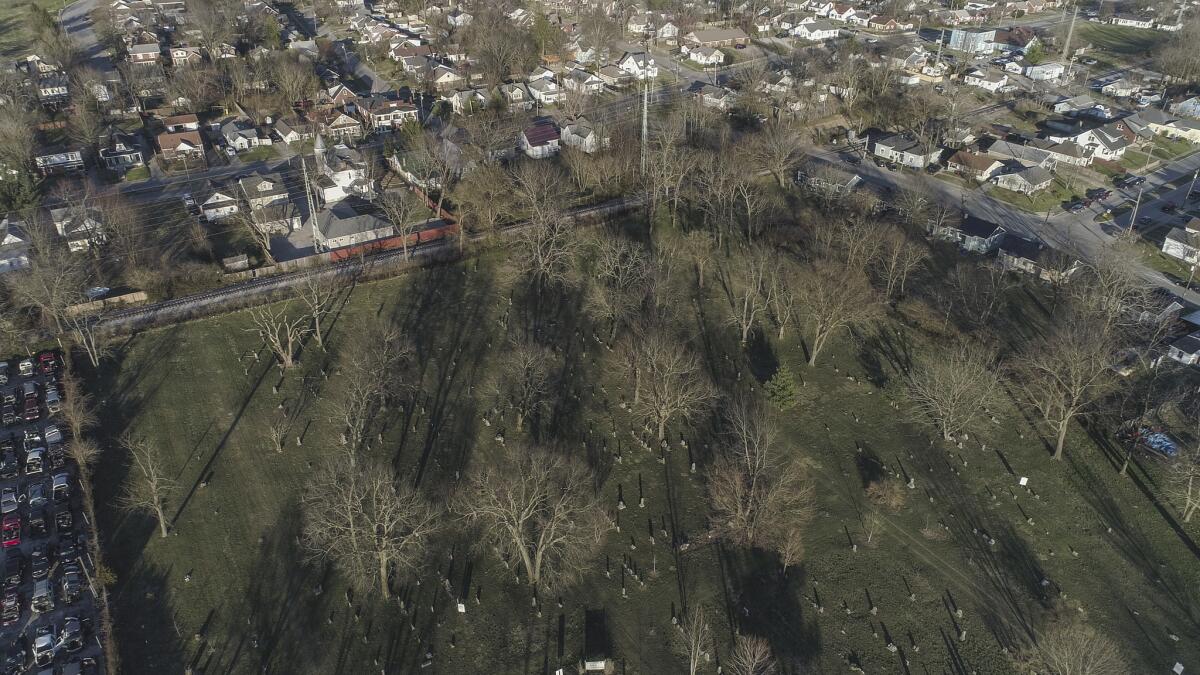
More to Read
Start your day right
Sign up for Essential California for news, features and recommendations from the L.A. Times and beyond in your inbox six days a week.
You may occasionally receive promotional content from the Los Angeles Times.
